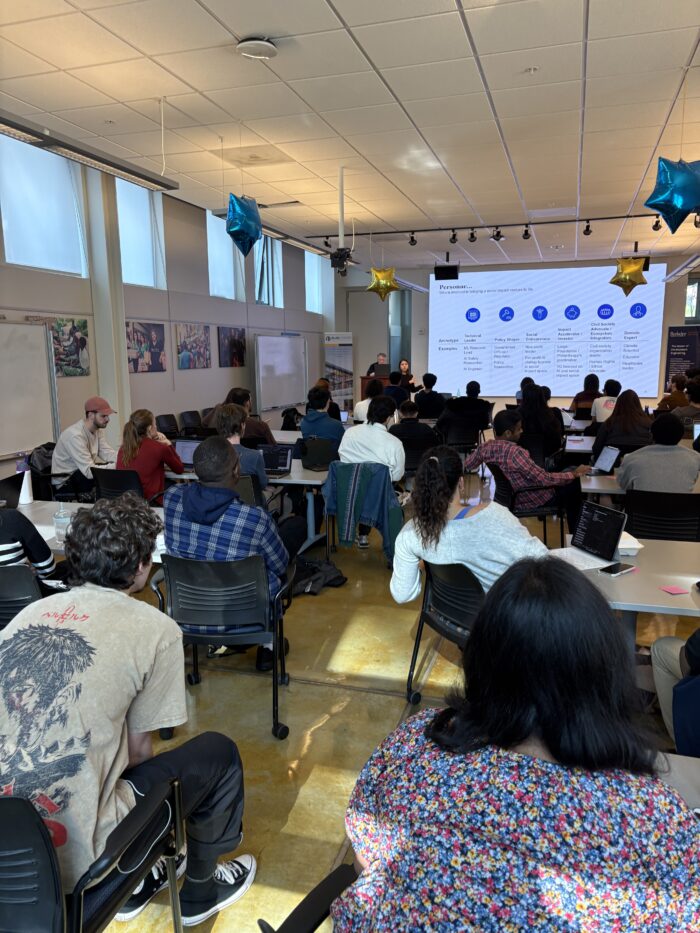
The intersection of artificial intelligence and social impact represents one of the most promising frontiers for addressing humanity’s greatest challenges across many domains, e.g., in education, health, climate change, and the future of cities. A vast majority of societal challenges are yet to be solved globally – 20.5M children do not have access to vaccines, 773M adults are illiterate globally, 65M firms in developing countries have an unmet financing need, and 32-132M more people will be driven to extreme poverty due to climate change.
Against this backdrop, while AI is no panacea, it has emerged as a powerful catalyst for change when applied responsibly. We see early innovations in maternal health programs using AI to reduce program dropout rates, in early warning systems protecting communities from floods, in conservation efforts monitoring rainforests for illegal deforestation and many more examples. The recent emergence of generative AI has further broadened access to these capabilities. Capabilities that once required specialist skills – from language translation to disease identification to harmful content detection – are becoming increasingly accessible to frontline workers and organizations.
However, this technological revolution brings both growing opportunity and greater responsibility. It requires identifying and mitigating potential harms (e.g., bias, misinformation) and confronting data privacy concerns. While AI offers novel tools to engineers for solving social challenges, applying it effectively requires a cross-disciplinary innovation process – with contributions from people in product, policy, design, data science, and engineering roles. An approach to social sector impact will take advantage of sophisticated technologies – but must remain deeply human-centered.
Through case studies and live interactions with successful entrepreneurs, students will explore the complex ecosystem of social impact ventures. The course emphasizes practical solutions to challenges found in global communities as well as right in our neighborhoods.
The class is led by Roger Roberts, a partner in the Silicon Valley office of McKinsey & Company. He launched and helped lead the growth of McKinsey’s practice serving clients on the impact of technology in their business, public sector, and social sector organizations – and has served a wide range of clients over his 30+ year career. He has led work looking at AI’s impact on the economy and jobs as well as McKinsey’s work on AI’s impact on the UN Sustainable Development Goals (SDGs). He helped launch McKinsey’s AI Trust practice and serves both technology providers and large organizations on trustworthy development and deployment of AI. Finally, he has led economic development efforts based on technology innovation and McKinsey’s series of reports on the biggest technology trends reshaping the world today.
**Undergraduates seeking to take this class should reach out to Sam Goldman — samuelgoldman@berkeley.edu — in order to enroll.
Course Details
Instructor Details

Partner in the Silicon Valley office of McKinsey & Company

Associate Partner and co-leader of AI Trust at McKinsey & Company
